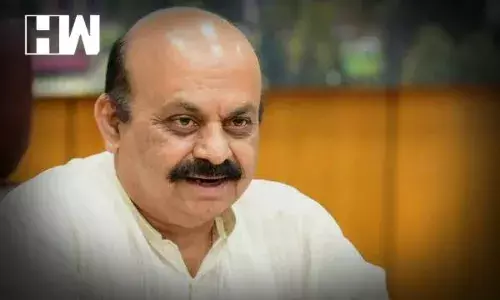Bangalore: On Thursday, the Karnataka government publicized an ordinance to give effect to the anti-conversion bill. The whole cabinet met for the approval of the bill. The new law is meant to prevent religious conversion either by force or through inducement.
Chief Minister Basavaraj Bommai had earlier said that as assembly and the legislative council were adjourned, “we will bring an ordinance to pass the bill in cabinet meeting”.
In December 2021, Karnataka Protection of Right to Freedom of Religion Bill was passed in the Legislative Assembly.
“Because the Assembly and Council got prorogued, we are placing a proposal to promulgate an ordinance in the Cabinet today,” CM Basavaraj Bommai said.
The government’s haste and the need for passing the anti-conversion bill through an ordinance, has been questioned by Karnataka Congress chief DK Shivakumar.
He said, “I don’t know why the Karnataka government is in such a hurry. They should promulgate an ordinance on some development agenda or giving employment to the youth.”
The measure aims to prevent conversion through “allurement,” “coercion,” “force,” “fraudulent tactics,” and “mass conversion.” According to the authorities, these incidents disrupt the state’s “public order.”
For forced conversion, the bill proposes imprisonment of three to five years with a fine of Rs 25,000. In the bill it is stated that converting a minor, woman or an SC/ST person will attract a jail term of 3 to 10 years, with a Rs 50,000 fine. Mass conversions will attract 3-10 years of jail time, with a fine of up to Rs 1 lakh.
Several BJP ruled states, like Uttar Pradesh, Madhya Pradesh and Himachal Pradesh have laws to prevent forcible religious conversions. Bommai had said last year that the state was “seriously considering” a similar law.
“Such things (conversions) are happening here and there. Couple of days ago I gave appropriate directions to district administrations not to allow any religious conversion through inducement or by force, as it is illegal,” Bommai had said.
As an independent media platform, we do not take advertisements from governments and corporate houses. It is you, our readers, who have supported us on our journey to do honest and unbiased journalism. Please contribute, so that we can continue to do the same in future.

